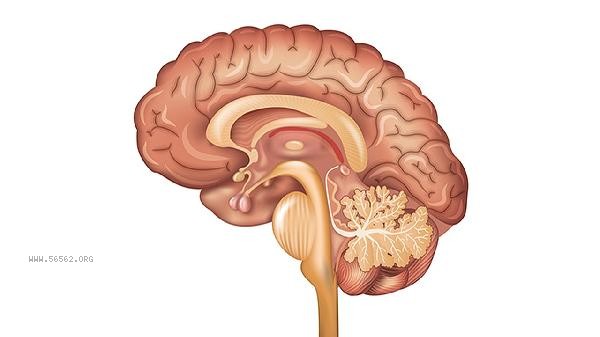The symptoms of insufficient qi and blood in the heart and brain mainly include dizziness, insomnia, forgetfulness, palpitations, shortness of breath, limb numbness, and pale complexion. The deficiency of qi and blood in the heart and brain may be related to factors such as excessive fatigue, emotional instability, chronic illness and physical weakness, irregular diet, and old age and physical decline. It usually manifests as symptoms such as mental lethargy, slow response, decreased memory, chest tightness and weakness, weak tongue and pulse.

1. Dizziness and vertigo
When there is insufficient blood supply to the head, the clear yang does not rise, and the brain and orifices are not nourished, it is easy to experience symptoms of dizziness and vertigo. Patients may feel heavy on their heads and light on their feet, which worsens when standing and decreases when lying down, accompanied by blurred vision or blackening of their eyes. Long term deficiency of qi and blood may affect cerebellar function and lead to balance disorders. Traditional Chinese medicine commonly uses formulas such as Guipi Tang and Bazhen Tang to regulate symptoms, combined with moxibustion at acupoints such as Baihui and Fengchi.
2. Insomnia and forgetfulness
The heart governs the mind and the spirit. If there is insufficient qi and blood, the mind and spirit will lose nourishment, manifested as insomnia symptoms such as difficulty falling asleep, shallow sleep, and easy awakening from multiple dreams. The brain is a sea of marrow, and when qi and blood are deficient, the sea of marrow is not filled, resulting in memory loss, lack of concentration, and other signs of forgetfulness. These patients often have palpitations, restlessness, and night sweats. Traditional Chinese patent medicines and simple preparations such as Tianwang Buxin Pill and Baizi Yangxin Pill can be used, together with Tonic Diet such as sour jujube kernel and longan meat.
3. Palpitations and shortness of breath
Insufficient heart qi leads to weak agitation, manifested as palpitations and palpitations, a feeling of heavy heartbeat or pauses, and a feeling of shortness of breath and fatigue with slight movements. In severe cases, arrhythmia may occur, and electrocardiogram shows sinus bradycardia or premature beats. These patients have a plump tongue with teeth marks on the edges and weak pulse. Traditional Chinese medicine commonly uses formulas such as Zhigancao Tang and Shengmai San for treatment. It is recommended to consume foods such as red dates and goji berries that nourish the heart and qi in moderation.

4. Limb numbness
When qi and blood cannot nourish the meridians of the limbs, symptoms such as numbness in the hands and feet, muscle weakness, and abnormal sensation may occur, which worsen when it is cold. Long term deficiency of qi and blood may lead to peripheral nerve degeneration, resulting in glove and sock like sensory disorders. Acupuncture and moxibustion treatment often takes Zusanli, Hegu and other acupoints, together with Huangqi Guizhi Wuwu Decoction to warm and unblock the meridians. Soaking feet in medicinal herbs such as safflower and angelica can promote blood circulation in daily life.
5. Pale complexion
The heart governs the blood vessels, and its radiance lies in the face. When qi and blood are insufficient, the face loses nourishment, manifested as anemia like signs such as pale complexion, pale lip and nail color, and pale eyelids and conjunctiva. Long term deficiency of qi and blood may be accompanied by dry hair, dry and flaky skin. Siwu Decoction, Danggui Buxue Decoction and other prescriptions are commonly used in traditional Chinese medicine. ass hide glue, black sesame and other blood tonifying ingredients can be used for food therapy to avoid excessive dieting and staying up late. Patients with insufficient cardiovascular and cerebrovascular qi and blood should pay attention to regular sleep patterns, ensure adequate sleep, and avoid excessive fatigue and emotional fluctuations. Eat more lean meat, animal liver, dark vegetables and other foods rich in iron and vitamin B12 in diet, and consume moderate amounts of ingredients such as yam, lotus seeds, walnuts that can invigorate the spleen and promote intelligence. Properly engage in soothing exercises such as Tai Chi and Ba Duan Jin to promote the circulation of qi and blood, and avoid intense exercise that consumes qi and harms blood. Pay attention to keeping warm in winter, especially protecting the head, neck, and limbs. If the symptoms persist and do not improve, or if fainting or severe arrhythmia occurs, timely medical attention should be sought for systematic adjustment.









Comments (0)
Leave a Comment
No comments yet
Be the first to share your thoughts!